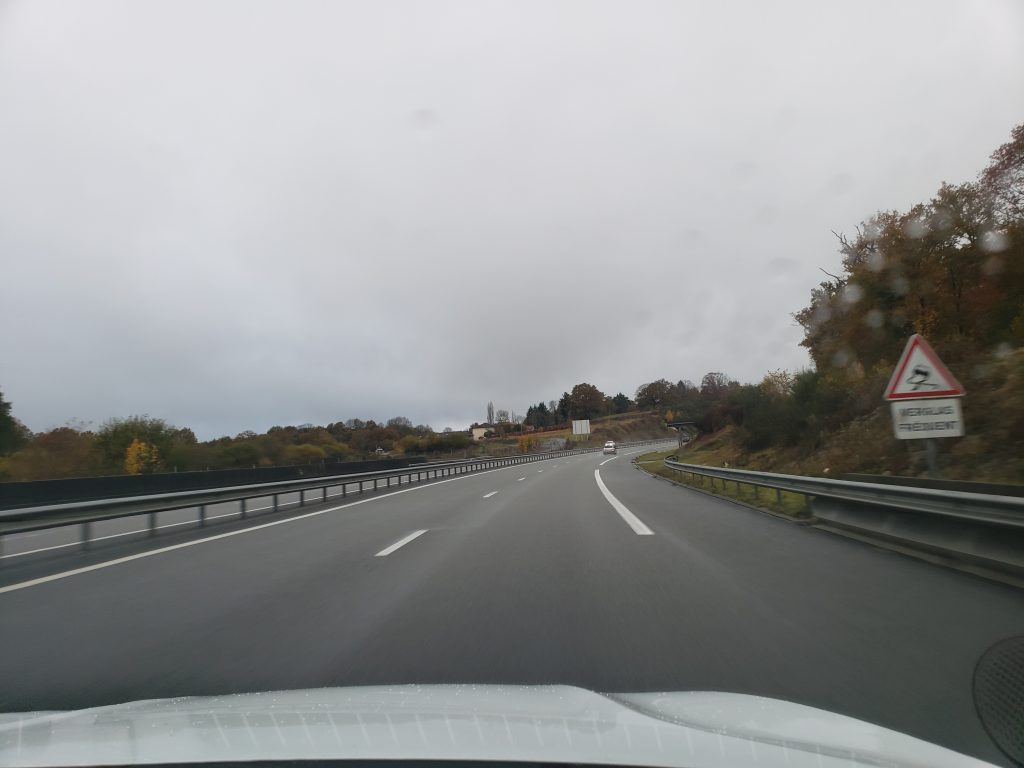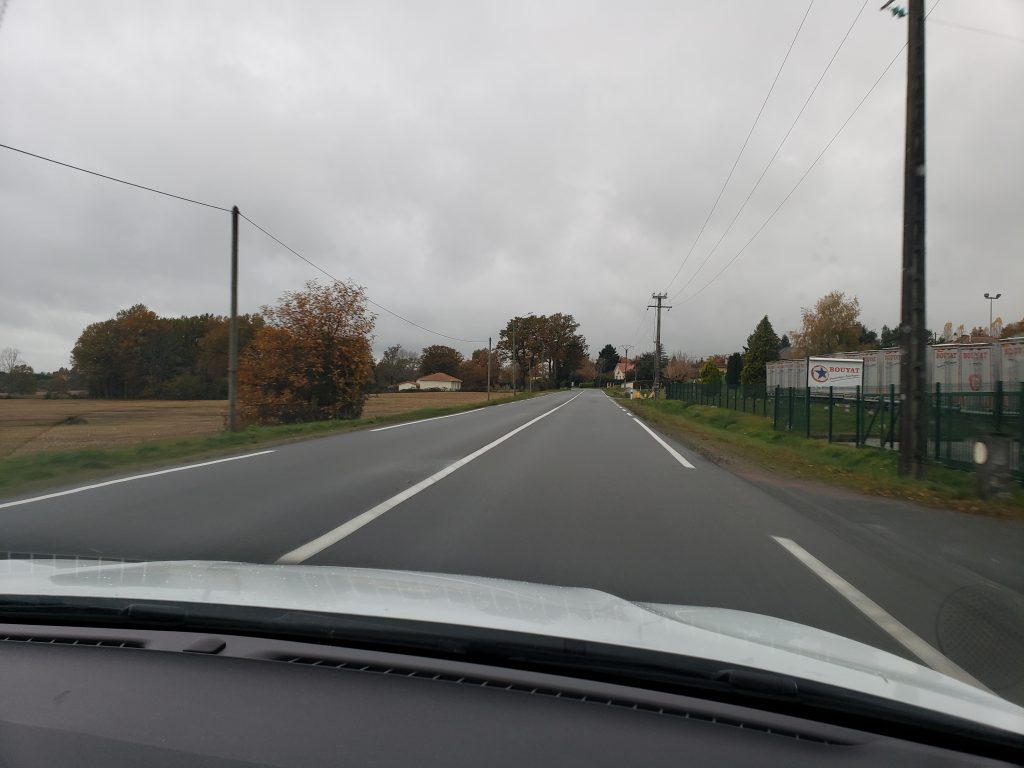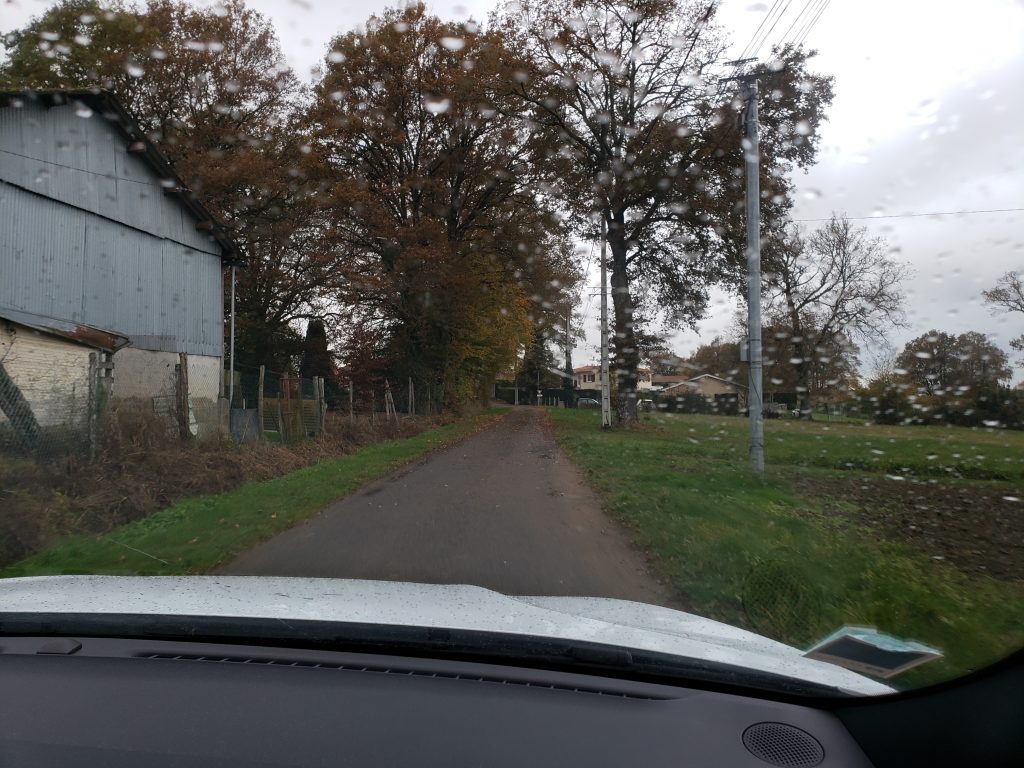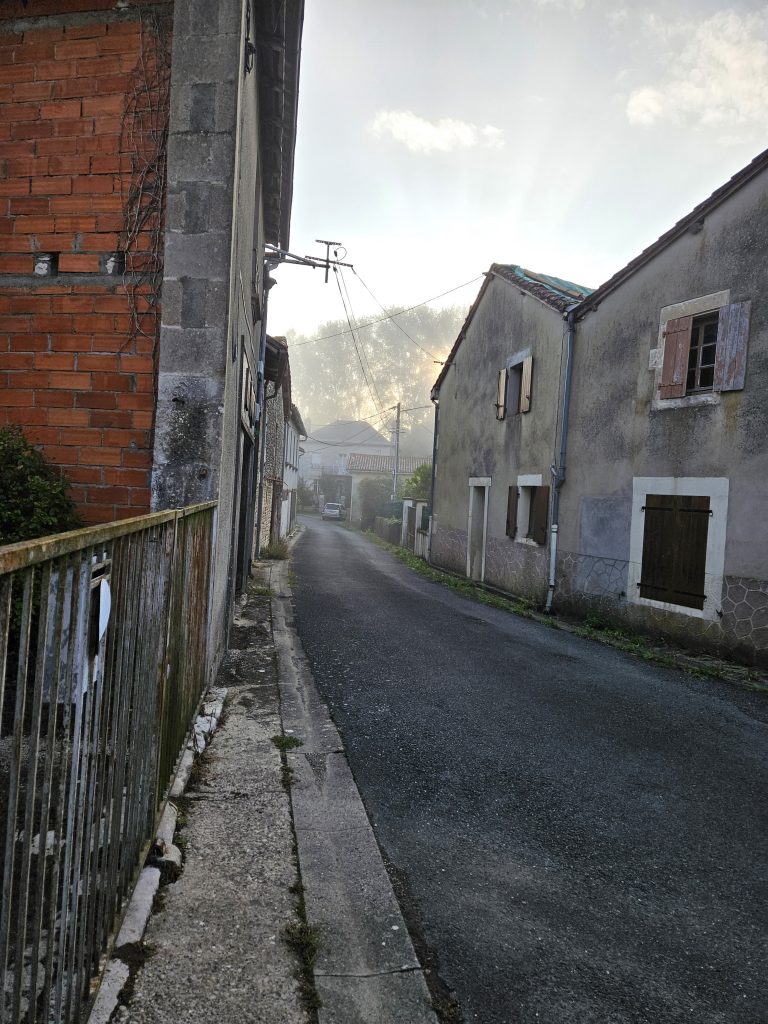
Last week I posted about some things I think France does really well. There is a flip side, of course, and here it is, according to moi.
1 Roads
France has some beautiful highways. The Autoroutes are the best, with speed limits a bit above 80 mph, beautiful construction, excellent maintenance, and tolls. Rather steep tolls. But that isn’t the problem.
There are also “Limited Access Roads” such as the N10 which passes near us, and is the quick way to Poitiers and Angouleme (and the A10 Autoroute, come to that.) It is mostly what we’d call a freeway, but there are sections with intersections where the speed limit drops to about 55 mph, and the top speed is 110 kph, or about 65 mph. But that isn’t the problem, either.

A Limited Access Highway.
Down a notch we find the main roads of France, which are usually two lanes wide, and generally have center lines and edge lines. They look like this:

Many are straight. I thought this was due to the Romans, but actually Napoleon started straightening them to move his troops faster, and other administrations liked the idea so much that they kept up the practice. Actual Roman roads do curve around sometimes, although you’ll seldom hear that mentioned.
The speed limit on main roads is 90 if they’re good and wide and straight, the default speed limit is 80. The roads are found in narrower and narrower sections as you travel around. First the edge lines disappear, then the center line degrades into a series of dots and disappears all together. A lot of common roads around where we live are about as wide as the one here:

A country lane. What doesn’t show is the curves, the way you can’t see oncoming traffic due to bends and crops (yes, crops; maize (corn) is pretty tall you know,) and the uncertainty that one feels when one sees an oncoming vehicle. Unless it’s farm equipment, then one is not uncertain because one gets out of the way!
Speaking of Roman roads, there is one in town. Here’s a picture of it:

Notice how it turns in from stage right? It’s a part of the roads Agrippa made for Augustus when Gallia was first getting organized. I think it was about 13bc. I don’t think they used Macadam.
2. Non-emergency medical specialist visits
I was referred to a cardiologist last April. I went to the office (in a nice hospital) with my referral form, and got an appointment Next October tenth. The condition is that a-fib you probably have seen advertised somewhere. It isn’t dangerous, but it’s a serious nuisance. This only applies to non-emergency services. If you’re in an accident, or really ill, you get right in and receive the care you require. But, six months? Sheesh!
3. Prompt response from tradespeople and others
It isn’t always that you can wait an eternity for a tradesperson to get back to you, but it happens. I’ve had a couple of electricians come out, look at what we wanted done, say they’d get back to me and then fade out like a ghost. This is sad because we do need some electrical work done. France is slower paced in general, but I mean a case where a customer (client in French) is forgotten entirely. Another example of French attitudes toward custom is that estate agents do not work Sundays (the British one we bought from did, so there!) They will tell a potential customer that they are simply too busy, and oh, I don’t work Sundays at all. I was a (Real) Estate Agent for six years. I would never have said anything like that. Nor would anyone in sales. Also, there is no MLS, so you need to find an agent from the agency listing the house you want to see.
4. Supermarket organization
Not where they put stuff. Just like in America, those stores rearrange at intervals to keep you on your toes or whatever. I mean that, for instance, rather than have people come in at say 4 in the morning to stock the place, they have the stockers hauling hand trucks of pallets full of merchandise during peak shopping hours. The loads passing down the aisles are a lot like combines on narrow roads: you get out of the way. Why do they do this? I have no idea. Union resistance? Inertia? The management enjoys watching customers scatter like tenpins when the big pallet rolls through? Heck, you tell me!
5. Over-the-counter medications
Sure, you can get them. Pretty much anything you can buy in the US you can buy in France. Except, if it is at all a drug, you must go to a pharmacie to buy it. Aspirin? Pharmacy. Athlete’s foot creme? Pharmacy. Vitamins are not considered drugs, so you can buy them in the supermarket. Likewise CBD oil is not a drug, and you can even mail order it. I find it irritating to have to make a special stop at a specialty store just to get a simple bit of medicine. Also, the packages are smaller, so you end up going back more often. Luckily aspirin and the like are light and easy to bring back from America and good old (WalMart, CVS, Walgreen’s, Kroger, etc.)
That’s five pros and five cons, and that’s enough for now. This blog is sort of stream of consciousness, so perhaps I’ll return to this topic again sometime. You never know unless you follow along. Feel free, please, to follow along!